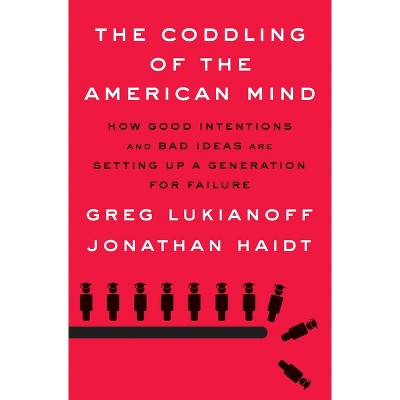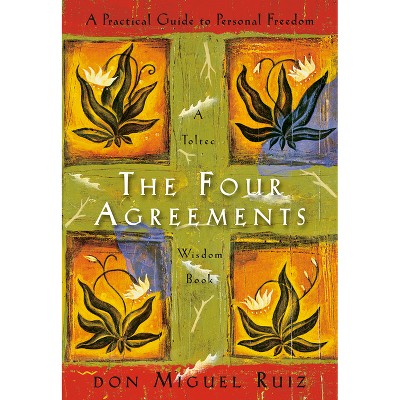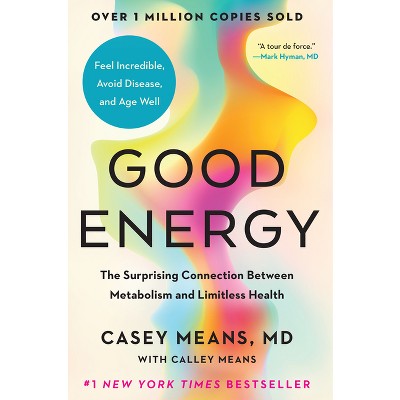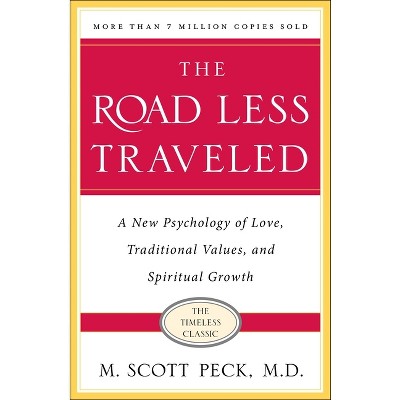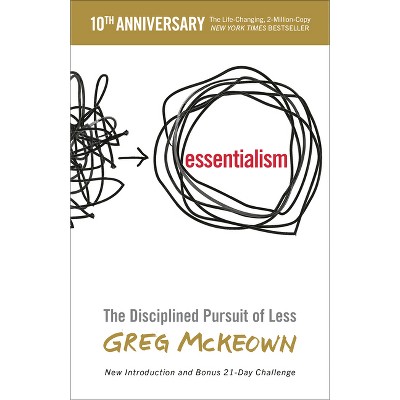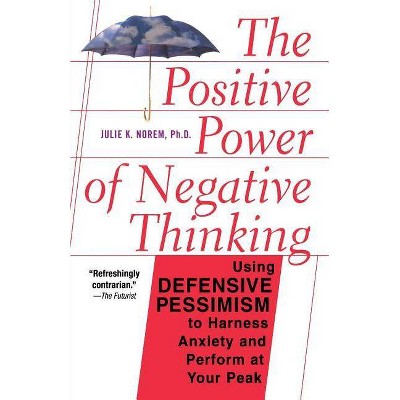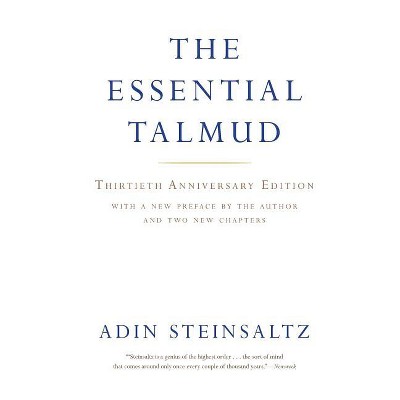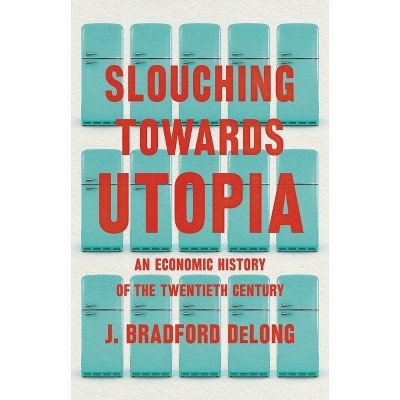Sponsored

The Happiness Hypothesis - by Jonathan Haidt (Paperback)
In Stock
Sponsored
About this item
Highlights
- The author of the #1 New York Times bestseller The Anxious Generation shows how a deeper understanding of the world's philosophical wisdom can enrich and transform our lives The Happiness Hypothesis is a book about ten Great Ideas.
- About the Author: Jonathan Haidt is the Thomas Cooley Professor of Ethical Leadership at New York University's Stern School of Business.
- 320 Pages
- Self Improvement, Personal Growth
Description
About the Book
An award-winning psychologist examines the world s philosophical wisdom through the lens of psychological science"Book Synopsis
The author of the #1 New York Times bestseller The Anxious Generation shows how a deeper understanding of the world's philosophical wisdom can enrich and transform our lives The Happiness Hypothesis is a book about ten Great Ideas. Each chapter is an attempt to savor one idea that has been discovered by several of the world's civilizations--to question it in light of what we now know from scientific research, and to extract from it the lessons that still apply to our modern lives and illuminate the causes of human flourishing. Award-winning psychologist Jonathan Haidt shows how a deeper understanding of the world's philosophical wisdom and its enduring maxims--like "do unto others as you would have others do unto you," or "what doesn't kill you makes you stronger"--can enrich and transform our lives.Review Quotes
"The Happiness Hypothesis... has more to say about the pleasures and perils, the truths, of being alive than any book I've read in a long time."--San Francisco Bay Guardian
"Riveting... the most humane, witty and comforting of these three books, brilliantly synthesising ancient cultural insights with modern psychology, and even holding out some faint hope that your happiness, if not your tallness, might be marginally adjustable after all."--Times (UK)
"This fresh and original book goes to the heart of what people have found out about happiness, across cultures and times. Enjoyable, important, and eminently readable."--Mihaly Csikszentmihalyi, author of Flow
"An erudite, fluently written, stimulating reassessment of age-old issues."--Publishers Weekly (starred)
"An intellectual tour de force that weaves into one fabric wisdom that is ancient and modern, religious and scientific, Eastern and Western, liberal and conservative--all with the aim of pointing us to a more meaningful, moral, and satisfying life."--David G. Myers, Hope College, author of Intuition
"It would be something of an exaggeration to say that Jonathan Haidt has found the final answer to happiness, but he has come as close as any other writer of our times. Every page of his book provides gems of insight about the good life and where to look for it. Anyone who is interested in human nature and its potential must read this book."--William Damon, senior fellow at Hoover Institution, author of Authentic Happiness
"Jonathan Haidt leaves no doubt about the importance of emotion in the creation of personal meaning. This is a delightful and courageous book."--Antonio Damasio, author of Looking for Spinoza
"Should we live our lives by age-old wisdom or the latest discoveries? Haidt gives us the luxury of not having to choose, bringing together both sources of insight in this sparkling investigation into the psychology of life and happiness."--Daniel Wegner, author of The Illusion of Conscious Will
"Haidt is a fine guide on this journey between past and present, discussing the current complexities of psychological theory with clarity and humor ... Haidt's is an open-minded, robust look at philosophy, psychological fact and spiritual mystery, of scientific rationalism and the unknowable ephemeral -- an honest inquiry that concludes that the best life is, perhaps, one lived in the balance of opposites."
--Bookpage"In our quest for happiness, we must find a balance between modern science and ancient wisdom, between East and West, and between 'left brain' and 'right brain.' Haidt has struck that balance perfectly, and in doing so has given us the most brilliant and lucid analysis of virtue and well-being in the entire literature of positive psychology. For the reader who seeks to understand happiness, my advice is: Begin with Haidt."
--Martin E.P. Seligman, author of Learned Happiness"A delightful look at the anatomy of happiness, and the myriad ways we humans have hunted for it throughout history.... A disarming, original book."--Seattle Times
"A fresh, serious, elevating guide to living everyday life better.... No modern reader should be without this carefully considered demystification of life."--Library Journal
"A hearty dish of conventional wisdom accompanied by a selection of psychological science of excellent vintage.... This book not only offers practical suggestions to help us succeed in these efforts, but also discusses why we should reexamine much of what we have been taught in the light of new psychological knowledge."--Philadelphia Inquirer
"Examining the ideas of thinkers like Plato, Buddha, and Jesus in light of modern research ... Haidt, a social psychologist, provides practical advice for parenting, romance, work, and coping with the political and cultural divisions."--Psychology Today
"I really can't recommend this book enough. It's one of the best and most insightful books I've ever read ... This book is just amazing for helping you recognize errors in thinking and personal biases that we all experience. It really gets to the roots of what makes people happy and unhappy rather than being some sort of a positive thinking, motivational book. Just outstanding stuff that you can really apply in day-to-day life."--Joe Rogan
"Psychologist Haidt exposes traditional received wisdom to scientific scrutiny. And learns that virtue is often not its own reward, extroverts really are happier than introverts, and conscious thought is not as important as we might like to think. Engaging and thought-provoking."--Bookseller
"Psychologist Jonathan Haidt shows in his wonderfully smart and readable The Happiness Hypothesis that modern science and history have a lot to say to each other."--Washington Post
"This is a delightful book ... Haidt's writing embraces spiritual and mystical viewpoints while retaining scientific and rational coherence."--Nature
"This is my most gifted book."--Damian Hughes, co-host, The High Performance Podcast
"This unusual book sets itself apart from the self-help category with its extensive scientific references, and intelligent, neutral prose, while the author's illuminating illustration of how the human mind works is both educational and refreshing."--Sunday Times (UK)
"You know what? Reading it did actually make this reviewer happier."--Arena (UK)
"The Happiness Hypothesis is a wonderful and nuanced book that provides deep insight into the some of the most important questions in life -- Why are we here? What kind of life should we lead? What paths lead to happiness? From the ancient philosophers to cutting edge scientists, Haidt weaves a tapestry of the best and the brightest. His highly original work on elevation and awe -- two long-neglected emotions -- adds a new weave to that tapestry. A truly inspiring book."
--David M. Buss, author of The Evolution of Desire"In this beautifully written book, Jonathan Haidt shows us the deep connection that exists between cutting-edge psychological research and the wisdom of the ancients. It is inspiring to see how much modern psychology informs life's most central and persistent questions."
--Barry Schwartz, author of The Paradox of ChoiceAbout the Author
Jonathan Haidt is the Thomas Cooley Professor of Ethical Leadership at New York University's Stern School of Business. He is a social psychologist whose early research examined morality and the moral emotions. He now studies the effects of technology on children and on democracies. He is the author of three New York Times bestsellers: The Righteous Mind, The Coddling of the American Mind, and, most recently, The Anxious Generation. He lives in New York City.Shipping details
Return details
Frequently bought together
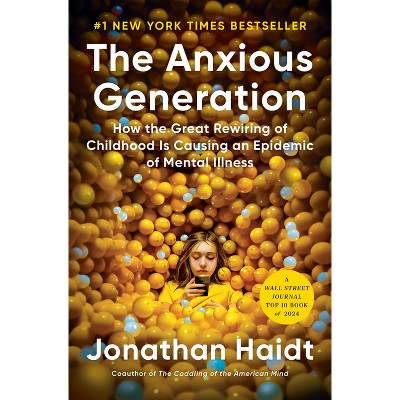
Guests also viewed

